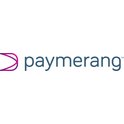Are Bank ePayables Programs Creating More Work Than They Solve?

As the hospitality industry continues to evolve, efficient management of Accounts Payable (AP) processes becomes crucial for maintaining financial health. The rise of electronic payments (ePayments) for business disbursements has highlighted the potential benefits of automation. However, while bank ePayables programs offer a seemingly straightforward solution, they often fall short, creating more work than they solve. This article explores why companies should thoroughly vet these programs and consider specialized Payment Automation providers to save time, enhance service, and mitigate the risks of payment fraud.
The Hidden Costs of Bank ePayables Programs
1. Positive Pay Thresholds and Operational Inefficiencies
Positive Pay, a common feature in bank ePayables programs, is designed to prevent fraud by alerting discrepancies in issued checks. However, low Positive Pay thresholds can result in a high volume of false positives, causing operational inefficiencies. Each alert, whether a minor discrepancy or a genuine fraud attempt, requires investigation, diverting resources from more critical tasks. While some banks offer customization of these thresholds, the balance between fraud prevention and efficiency is often difficult to achieve, leading to either overlooked fraud attempts or an overwhelmed AP department.
2. Security Measures and Data Vulnerability
Bank ePayables programs must include robust and continuous fraud protection measures. However, persistent fraud protection alone is insufficient if data security practices are lax. The handling of sensitive payment information, such as ACH details, requires stringent security protocols. Companies must verify who collects, stores, and maintains this data and ensure compliance with NACHA (National Automated Clearing House Association) standards. Any breach in this process can lead to severe financial and reputational damage, making comprehensive data security a non-negotiable aspect of an effective payment solution.
3. Fragmented Payment Methods and Vendor Management
Many bank ePayables programs lack the flexibility to handle various payment methods seamlessly. Companies often end up managing a combination of card payments, ACH transactions, and manual check processing. This fragmented approach not only creates additional workload but also increases the risk of errors and fraud. Effective vendor management, including continuous research and enrollment, is essential to maintain accurate payment details and reduce payment errors. Unfortunately, many bank solutions do not offer this level of support, placing the burden back on the AP department.
4. Compliance and Hidden Costs
Compliance with industry standards and regulations such as PCI DSS (Payment Card Industry Data Security Standard) and OFAC (Office of Foreign Assets Control) is critical. Banks often charge setup fees, transaction fees, or maintenance fees, which can add up, making these programs less cost-effective than they initially appear. Additionally, the structure of cash back rewards on virtual card payments can be opaque, with some banks splitting Basis Points (BPS) differently based on transaction size. This lack of transparency can hinder accurate financial planning and diminish the perceived benefits of these programs.
The Case for Specialized Payment Automation Providers
Given these challenges, companies should consider specialized Payment Automation providers, which offer a comprehensive solution tailored to AP needs:
1. Streamlined Operations
Payment Automation platforms provide end-to-end solutions that streamline AP workflows. By allowing companies to upload a single unsorted payment file, these platforms eliminate manual work and reduce reconciliation efforts. This streamlined approach frees up valuable time and resources, enabling AP departments to focus on more strategic tasks.
2. Enhanced Security and Compliance
Specialized providers ensure robust data security and compliance with industry standards. They handle the collection, storage, and maintenance of sensitive payment information securely, mitigating the risk of data breaches. Additionally, these platforms typically offer continuous fraud protection measures that adapt to evolving threats, providing a more secure payment environment.
3. Flexible Payment Methods and Vendor Support
These platforms offer flexibility in payment methods, accommodating cards, ACH, and checks within a single system. They also partner with suppliers to facilitate the transition to electronic payments, reducing the workload on the AP department. Continuous vendor research and enrollment ensure payment details are always up-to-date, minimizing the risk of errors and fraud.
4. Transparent Cost Structures and Financial Benefits
Payment Automation providers typically offer transparent fee structures, making it easier for companies to understand and manage costs. They often provide cash rebates, ensuring companies benefit from their payment volumes. This transparency and financial incentive make them a more attractive option compared to traditional bank programs.
Conclusion
While bank ePayables programs offer a pathway to AP process optimization, they often fall short, creating more work and exposing companies to risks. By moving to a specialized Payment Automation providers like Paymerang, companies can achieve greater efficiency, enhanced security, and significant cost savings. In an industry where time and accuracy are paramount, choosing the right payment solution can transform AP departments into strategic assets rather than operational liabilities.
To learn why Paymerang’s Payment Automation platform is the Gold Standard in Hospitality payments, visit the Hospitality solutions page to schedule a personalized demo of the platform.
About Paymerang
Paymerang provides a streamlined invoice and payment automation platform that brings Accounts Payable (AP) departments into the modern age. Paymerang's platform saves AP departments thousands of hours annually, enhances visibility, increases accuracy, improves efficiency, and earns rebates while reducing paper, fraud risks, and operating costs. Learn more at https://www.paymerang.com/.
